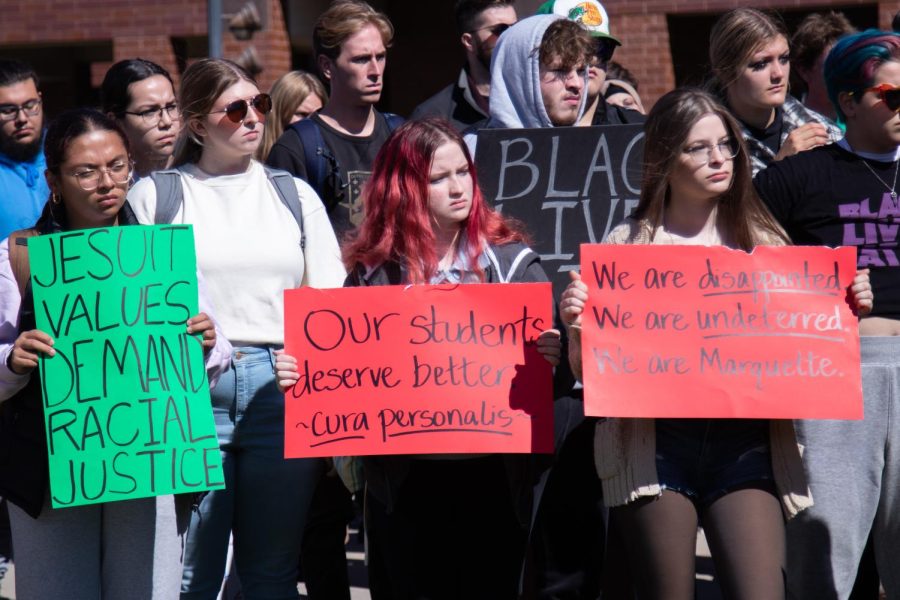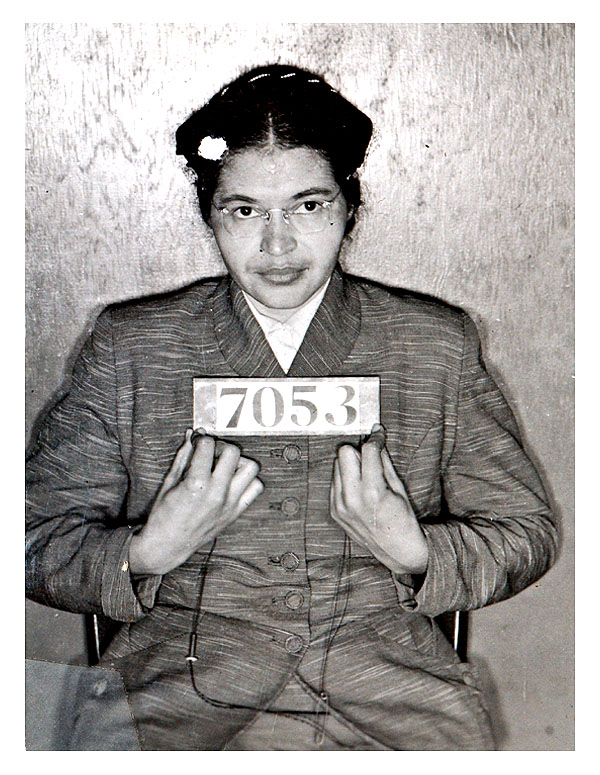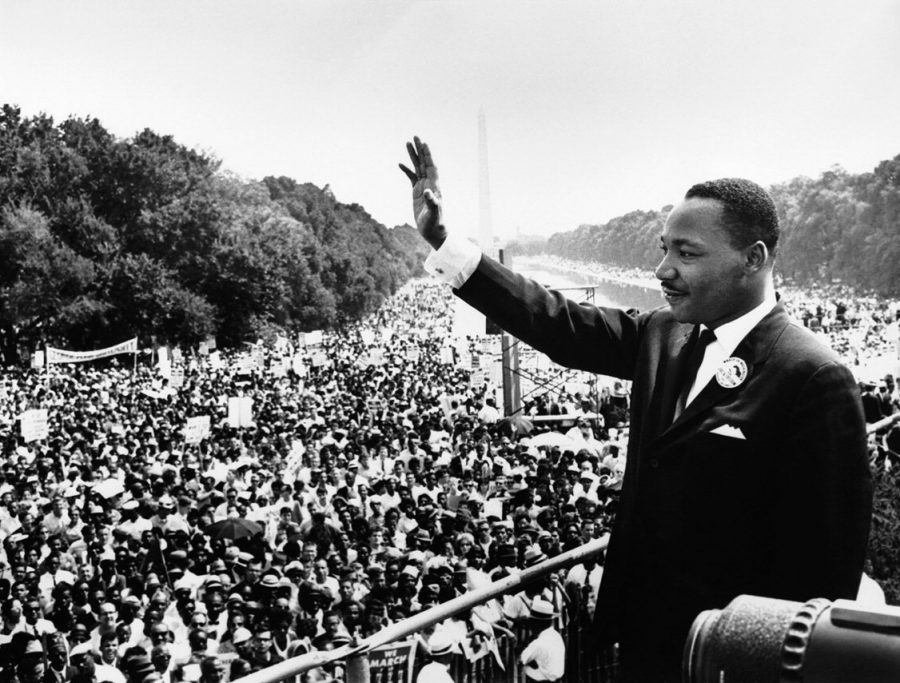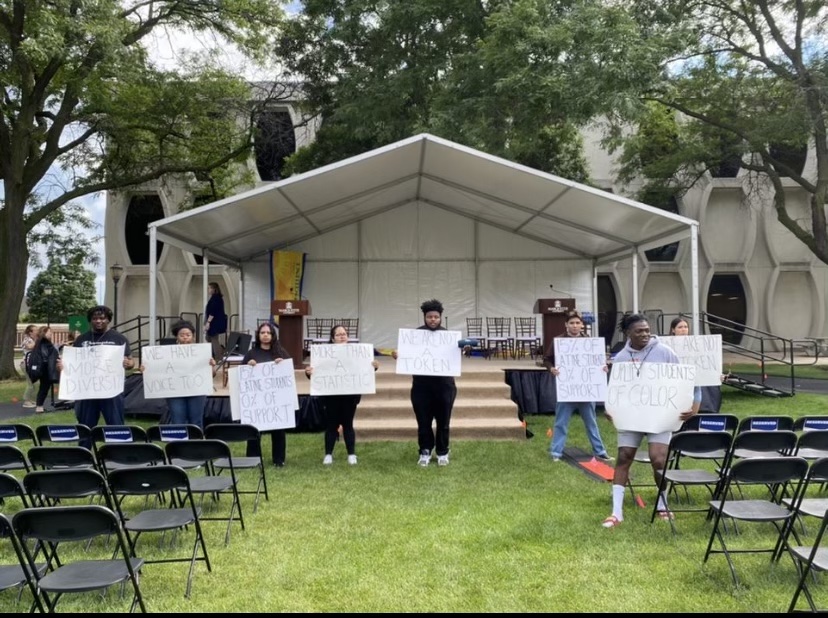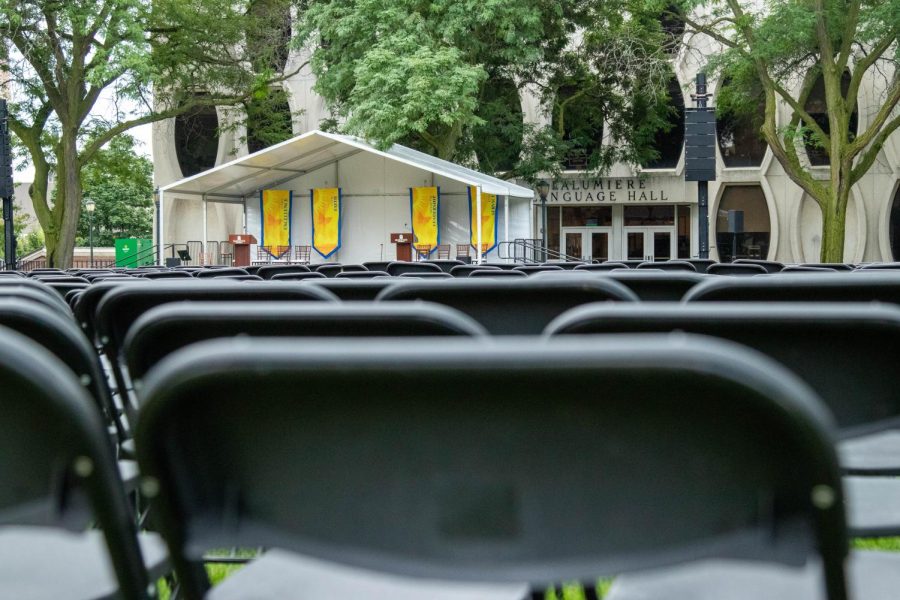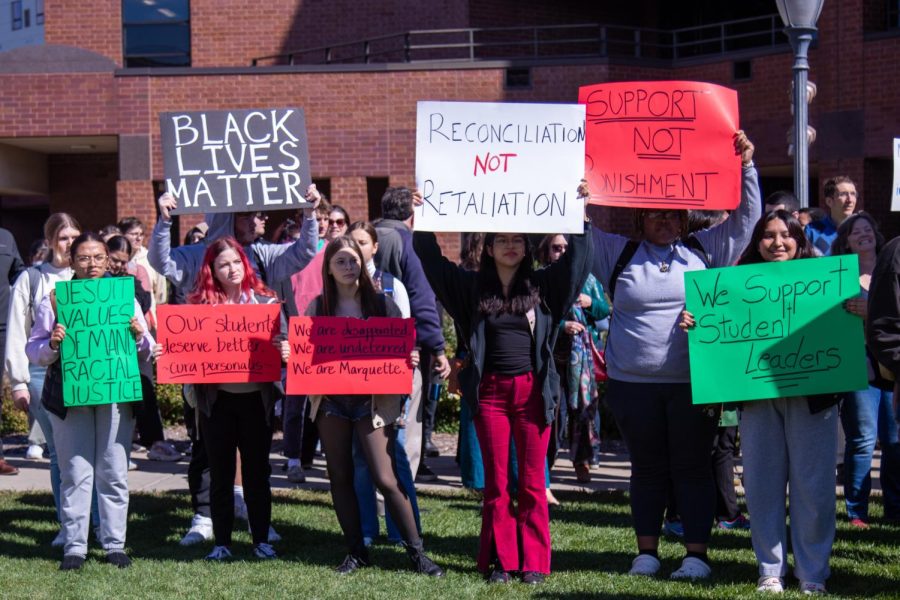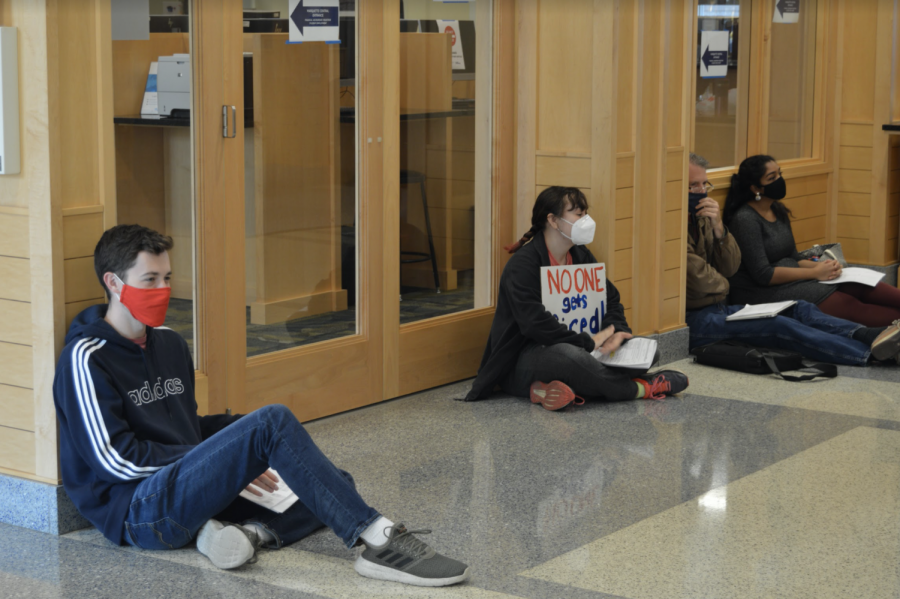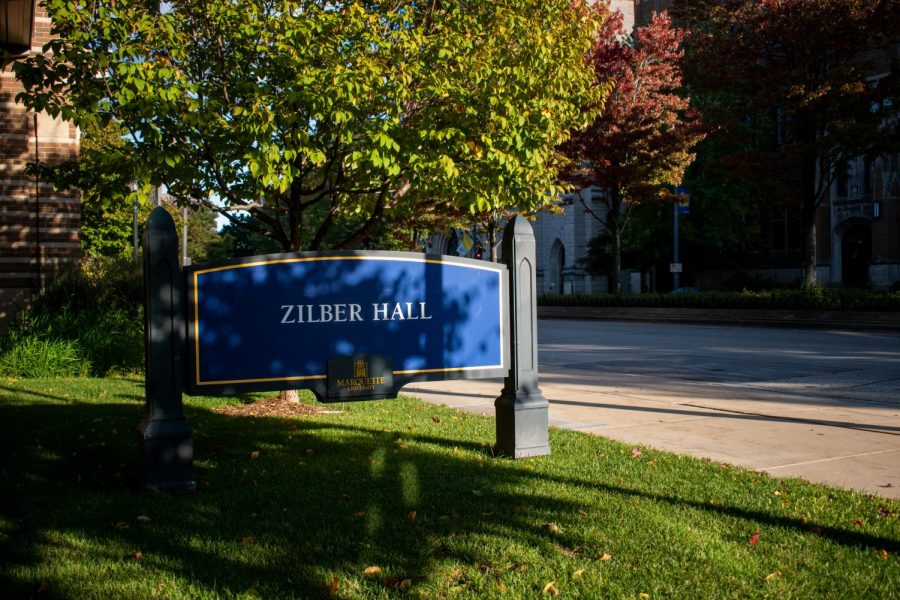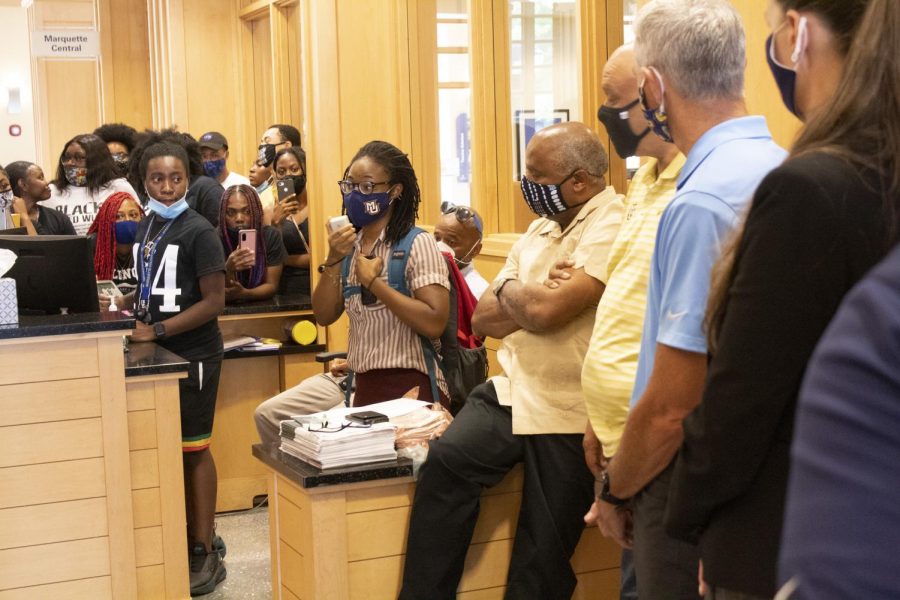Over the past century — largely following the wake of the Civil Rights movement in the 1950s — Marquette students, faculty and staff have been consistent advocates for change. But, much of their fights for change are still ongoing today.
“They were tired of words”
In March 1964, around 700 Marquette students and faculty members gathered in front of Schroeder Hall, preparing to march down Wells Street in protest of ongoing issues of racial violence in front of the Milwaukee courthouse.
The demonstration was led by Marquette organizations, Students United for Racial Equality and Young Christian Students, standing in solidarity against recent violence in Selma, Alabama, and the fight for equal voting rights across the country.
“The news that there was going to be a protest march spread around the campus like a prairie fire,” a Marquette Hilltop article says. “They were tired of words. With youth’s desire for action welling up in them, they wanted to show that they meant what they had been saying.”
At the courthouse, the Marquette community was joined by nearly 1,300 other community members and students from the University of Wisconsin-Milwaukee. But, it was just the beginning of protests during the Civil Rights movement.
“Whites-only” policy
Almost two years later, in December 1966, a group of Marquette students gathered in front of the Eagles Club on 24th Street and Wisconsin Avenue, protesting its “whites-only” membership policy and the university’s decision to host its annual Tip-Off dance in one of its ballrooms.
Demonstrators shared their disagreements on the “neutral position” of the administration towards holding the event at the club, according to the Milwaukee Journal Sentinel’s coverage at the time.
1968
The SURE organization held another march to O’Hara Hall on 11th Street in 1968, demanding more scholarships for Black students, more classes on Black culture and a greater amount of local community outreach programs. Some members also fasted, eating only bread, and drinking tea and water.
After the assassination of Dr. Martin Luther King Jr. April 4, demonstrations on campus led to an incident at the Brooks Memorial Union May 8, where 200 students barricaded the doors of the union, trapping over 400 faculty and staff from leaving the Pere Marquette dinner being held inside. Two students were arrested.
Later that night, 100 demonstrators gathered in the union and refused to leave until the arrested students were released.
Father James Groppi, adviser of the Milwaukee National Association for the Advancement of Colored People Youth Council, spoke to a crowd in the Union ballroom, speaking up about institutional racism.
“We have stayed in our institutions and have kept quiet, and in doing this we have aggravated the problem,” Groppi says in the May 8, 1968 issue of the Marquette Tribune. “We want more and we are going to get more.”
TODAY
Convocation Demonstration
However, students today are still fighting for more.
Marquette University’s New Student Convocation was canceled and later postponed Aug. 25, 2022, after a demonstration held by members of the Black Student Union, Marquette University Student Government, National Association for the Advancement of Colored People at Marquette University and the Latin American Student Organization.
Outside Lalumiere Language Hall, just 15 minutes before the program began, students held signs and chanted phrases in an effort to hold the university accountable for how students of color are treated on campus.
The 10 students were put on probation and sent through the code of conduct process through which they were later forced to step down from their leadership positions.
“In my read, university leaders are punishing the students for making them feel personally embarrassed and thrown off at convocation. It’s not just unfair, it’s immature. Our leadership should be better at handling these situations,” B. Pladek, associate professor of English, says in an email.
The students were also asked to pay a $300 fine, but that requirement was later taken back by the university.
“It’s worth stressing that while the students’ protest disrupted the convocation, it was university administrators who canceled it,” Pladek says in an email. “The students never had that power.”
Mental Health for Student-Athletes
But activism throughout Marquette history has not just come from the general student body, smaller groups on campus are making a difference in their own ways. Siani Brown-Carr, a junior in the College of Arts & Sciences, is a member of the women’s track & field team and a mental health advocate for student-athletes across the nation.
After playing sports for over a decade, Brown-Carr says she began to notice the pressure that athletes faced growing up.
“It’s a lot of pressure. It’s a lot of work. It’s a lot of sacrifice. It’s a lot of running around or doing things all the time. Busy schedules, and it’s this pressure to uphold what a student-athlete is supposed to look like,” Brown-Carr says. “And now when you’re a Division I athlete, you’re often expected to hold a certain image on campus.”
She says she also noticed how much her success was determined by time.
“For us, it’s how fast we run, but it might be how many points you score,” Brown-Carr says. “I started realizing how my performances were affecting me personally. I found that really minimal people spoke up about being a student-athlete … and I grew to find a love in just the idea of looking at a student athlete as a whole, or just like an athlete as a whole.”
Brown-Carr says she wanted to continue advocating for the mental health of student-athletes. She created a summer camp called “You Matter” to educate youth athletes ages six to 17 on mindfulness, identity and compassion.
“What we learned is that a lot of the kids are already experiencing what college athletes are experiencing. They already (are) experiencing performance anxiety and pressure,” Brown-Carr says. “The project was essentially a chance for them just to be able to have a safe space and to learn, but also feel comfortable with sharing and not feeling like they are alone.”
She says she hopes to normalize that it’s okay to not be on your best game every day.
Despite various challenges and inequalities over the past century, the Marquette community has and continues to be resilient on issues they are passionate about.
This story was written by Skyler Chun. She can be reached at [email protected].

